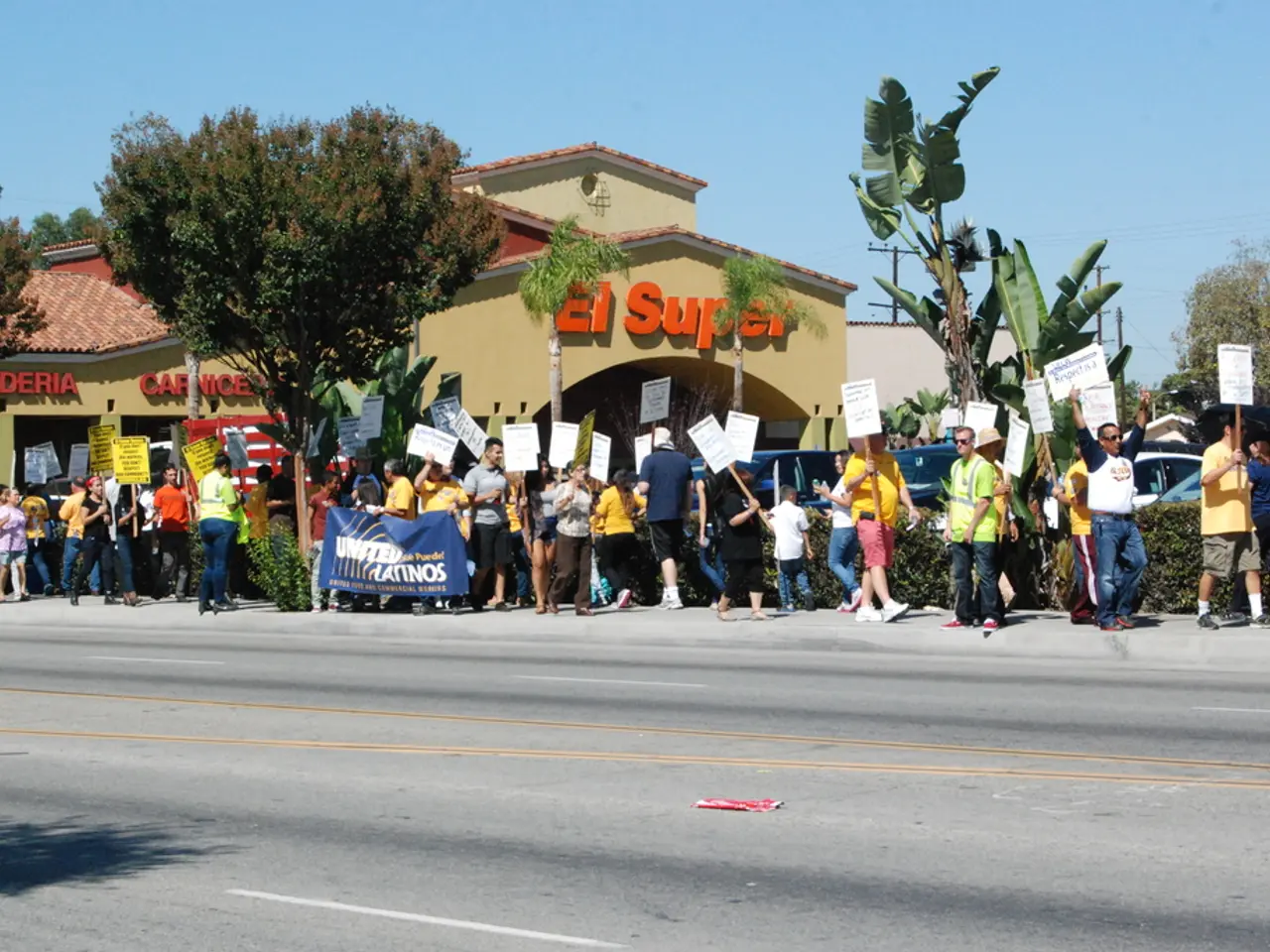Poland's Karol Nawrocki Secures Presidential Role Amidst Tight Election Margins
Poland's 2025 Presidential Election: Nawrocki's Victory and Its Political Implications
In a closely contested election, historian and conservative politician Karol Nawrocki has been officially declared the winner of Poland's 2025 presidential election. His victory marks a significant moment for the Law and Justice (PiS) party, which had lost parliamentary power in the 2023 elections.
Nawrocki secured 50.89% of the vote in the second round, narrowly defeating Rafał Trzaskowski who received 49.11%. The election's outcome was initially suggested to favor Trzaskowski by exit polls, but subsequent late polls and the final official count reversed this projection. Nawrocki garnered a total of 10,606,877 votes in the election, resulting in a margin of 778,996 votes.
Ukrainian President Volodymyr Zelensky congratulated Nawrocki and expressed hope for fruitful collaboration between the neighboring countries. However, Nawrocki's presidency is poised to deepen political polarization, particularly in relation to the centrist, pro-European government led by Donald Tusk.
Key political implications include:
- Continued Deadlock with Tusk’s Government: Nawrocki’s election is expected to prolong a legislative stalemate because he opposes the government’s agenda on judicial reforms, abortion laws, and same-sex partnerships. His presidency will likely hinder passage of the government’s proposed judicial reforms.
- Judicial Reform Stance: Nawrocki has signaled a tough position regarding the government’s judicial reform efforts. His rhetoric included personal attacks, calling Tusk “a liar” and accusing him of spreading disinformation during the campaign. This hostility points to conflict ahead over judicial independence and reforms, which have been a key political issue dividing the conservative PiS camp and pro-EU opposition.
- Social Policy: The deadlock extends to other social policies such as abortion and LGBTQ+ rights, where Nawrocki’s conservative and pro-Christian stance contrasts with the more liberal, centrist government initiatives. This suggests that new legislation expanding rights in these areas will face presidential veto or obstruction.
- Foreign Policy and Security: Nawrocki emphasizes strong national security, continuing support for Ukraine, and a pro-NATO, pro-West stance aligned with traditional Polish conservative policies. His presidency also has an international dimension, with his pro-Western and pro-Donald Trump campaign image and strong backing from right-wing leaders, indicating Poland’s geopolitical orientation will assert security concerns particularly around Russia.
European Commission President Ursula von der Leyen extended congratulations to Nawrocki but expressed concern over the potential shift in Poland's stance towards the EU. Outgoing President Andrzej Duda congratulated Nawrocki on his victory and expressed gratitude for the high voter turnout and civic engagement.
The high voter turnout of 71.63% in the presidential election marked the highest participation since the establishment of the Third Polish Republic, underscoring the competitive nature of the race and the deep-rooted political divisions in the country. The narrow margin in the runoff reflects a deeply polarized electorate.
Nawrocki's presidency could potentially veto legislation, particularly in areas such as judicial reform and social policy, setting the stage for a prolonged period of political tension and gridlock in Poland.
- The PiS party, bolstered by Nawrocki's victory, is likely to shape Poland's policy-and-legislation regarding judicial reforms, abortion laws, and same-sex partnerships.
- The Polish government, led by Donald Tusk, faces a tough battle in passing its proposed judicial reforms due to Nawrocki's opposition.
- Nawrocki's tough stance on the government's judicial reform efforts could lead to a war-and-conflicts of words between the president and the prime minister.
- With his conservative views, Nawrocki's presidency might influence the country's law-making with regards to social issues like car-accidents, fires, and crime-and-justice policies.
- In the realm of foreign policy, Nawrocki's presidency could bolster Poland's support for Ukraine and maintain its pro-NATO stance, potentially causing tensions with Russia.
- European Commission President Ursula von der Leyen is concerned that Nawrocki's presidency may lead to a shift in Poland's policy towards the European Union.
- The high voter turnout in the elections signifies general-news interest in the political scene, as well as the passionately-held beliefs of the electorate.
- Nawrocki's victory is a turning point in Poland's politics, marking a return to conservative leadership after the 2023 elections.
- In the face of Nawrocki's presidency, labor unions and advocacy groups for migration rights might find theirpolicy objectives obstructed in the realm of policy-and-legislation.








